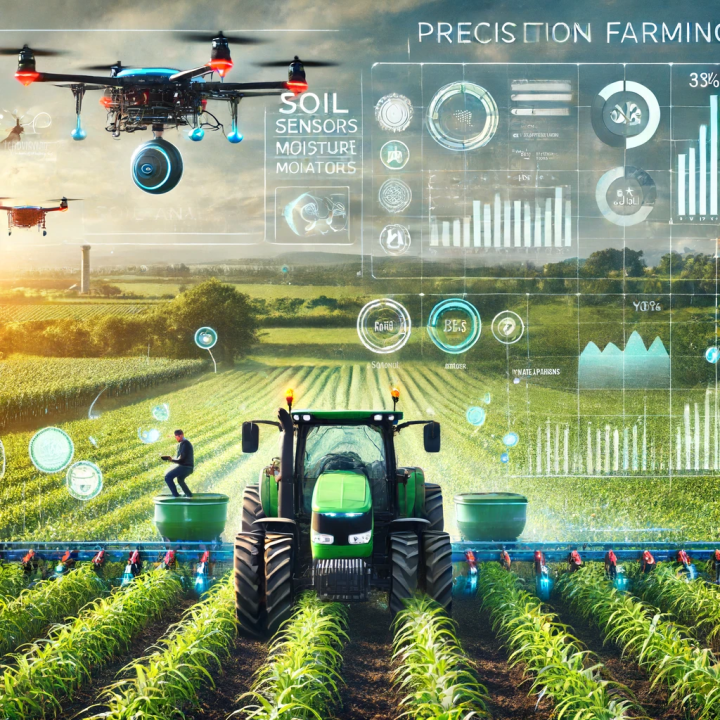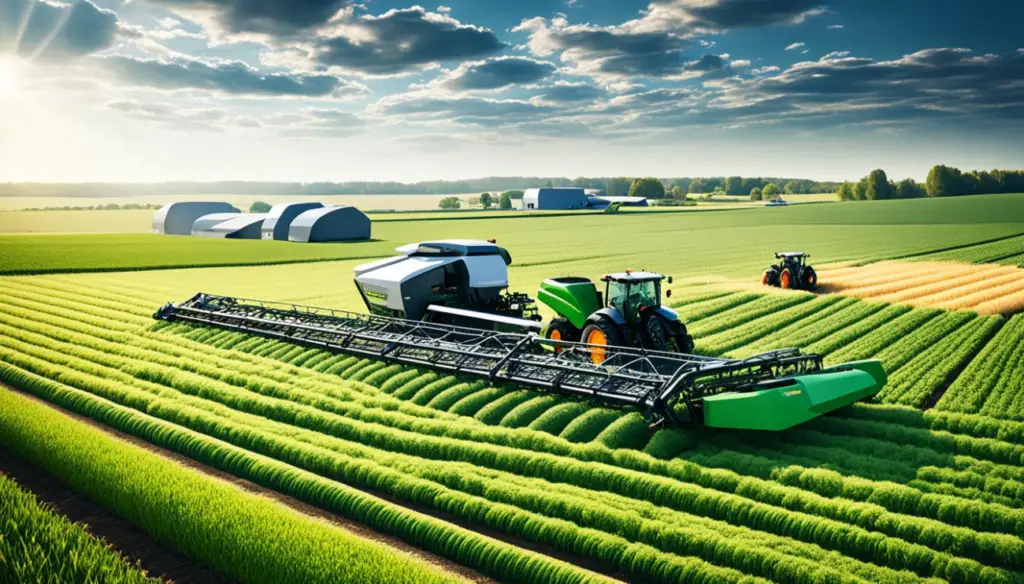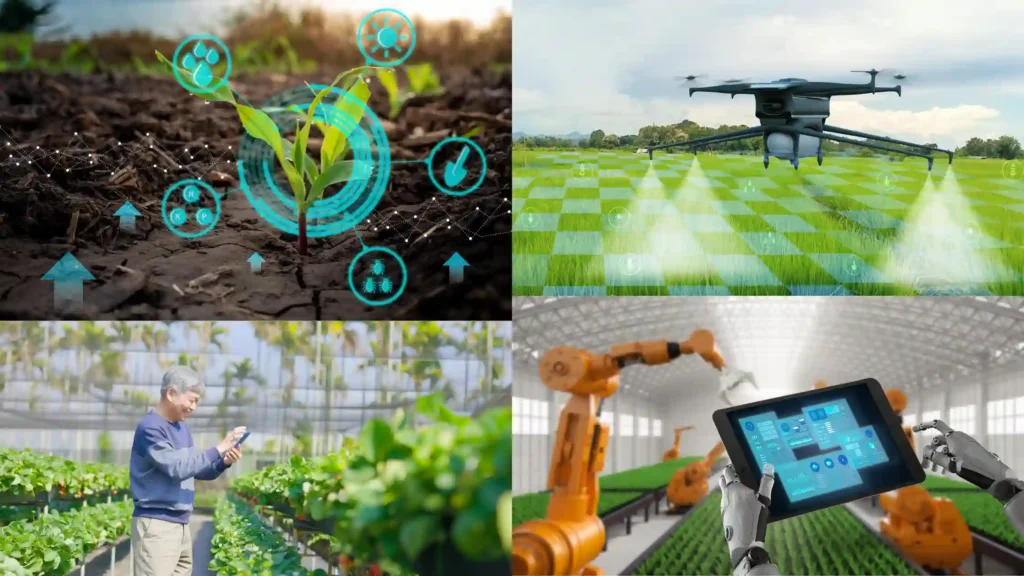Introduction
Agriculture is the backbone of worldwide economies and a critical sector for making sure food protection. However, with the growing challenges posed via weather alternate, resource shortage, and populace growth, traditional farming techniques are no longer sufficient. Agri-tech solutions have emerged as a transformative pressure, integrating era into agriculture to boost productivity, decorate sustainability, and deal with modern demanding situations.
What Are Agri-Tech Solutions?
Agri-tech, brief for agricultural technology, refers to the application of superior technology, which includes artificial intelligence (AI), robotics, the Internet of Things (IoT), and big records, to optimize farming procedures. These solutions goal to make agriculture smarter, greater green, and environmentally pleasant.

Key Components of Agri-Tech Solutions
- Precision Agriculture
- Precision agriculture utilizes IoT gadgets and sensors to reveal crop fitness, soil situations, and climate patterns in actual-time.
- Benefits: Reduced wastage of water, fertilizers, and insecticides, leading to value financial savings and environmental safety.
- Smart Irrigation Systems
- IoT-enabled irrigation structures offer water at once to the roots of plants based on soil moisture levels.
- Benefits: Efficient water use, lower expenses, and improved crop yields.
- Drones and Robotics
- Drones are used for aerial surveillance of fields, even as robotic machinery aids in planting, weeding, and harvesting.
- Benefits: Increased performance, decreased hard work prices, and precise farming operations.
- Blockchain in Agriculture
- Blockchain technology guarantees transparency in deliver chains, assisting hint the journey of produce from farm to desk.
- Benefits: Builds client accept as true with and minimizes food fraud.
- Artificial Intelligence and Machine Learning
- AI-driven tools analyze data to offer actionable insights, along with predicting pest outbreaks or optimizing planting schedules.
- Benefits: Improved decision-making and better productivity.
- Vertical and Indoor Farming
- Controlled environments and vertical stacking systems allow for yr-spherical cultivation of plants in urban areas.
- Benefits: Reduces land usage and shortens the farm-to-table distance.

Benefits of Agri-Tech Solutions
- Increased Productivity
- By automating obligations and optimizing sources, agri-tech enhances the productiveness of farms, even in aid-restrained regions.
- Sustainability
- Agri-tech promotes eco-friendly farming practices, along with reducing chemical use and holding water.
- Cost Efficiency
- Smart technologies lessen waste and operational expenses, improving the profitability of agricultural ventures.
- Resilience Against Climate Change
- Technology helps farmers adapt to converting climatic conditions via predictive equipment and climate-resilient crops.
Challenges in Implementing Agri-Tech
- High Initial Costs
- Many small and medium-sized farmers locate it tough to put money into superior technology because of monetary constraints.
- Lack of Awareness
- Limited know-how approximately agri-tech answers amongst farmers can hinder considerable adoption.
- Infrastructure Limitations
- In rural regions, inadequate infrastructure, including bad internet connectivity, impacts the efficiency of clever farming tools.
Real-World Applications of Agri-Tech
- In Russia, agri-tech is gaining momentum with tasks aimed toward modernizing agriculture. The united states is leveraging technologies like drones for crop tracking and AI for weather predictions, making sure extra efficient farming practices.
- Globally, countries like the USA and the Netherlands have integrated vertical farming and robotics to attain better yields with minimum environmental effect.
The Future of Agri-Tech
The future of agri-tech lies in similarly innovation and accessibility. Governments and private sectors must collaborate to make these technologies low-cost for farmers worldwide. Additionally, advancements in AI, robotics, and biotechnology will maintain to redefine the opportunities of agriculture.
Conclusion
Agri-tech solutions constitute a paradigm shift in agriculture, blending tradition with innovation. By adopting these technologies, farmers can’t only decorate productivity however also contribute to a sustainable and meals-steady future. Whether it is thru precision farming, clever irrigation, or AI-driven insights, agri-tech is the key to overcoming the challenges of modern agriculture and making sure prosperity for generations to come.


